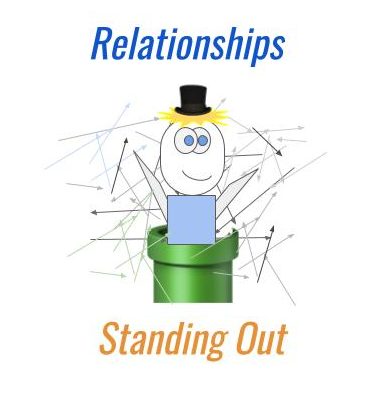
Written by David Tillem on May 17th, 2018 10 minute read
Relationships: A Simple Way to Stand Out
We are in a period of time where people all over the world PERCEIVE that they are the most connected they have ever been.
This is only partially true.
Facebook lets you see that your old roommate from college just had a baby, but did you write them a letter to congratulate them? Did you even send a text? Social media gives us the feeling that we are connected but, when it’s not backed by actions, it’s really just smoke and mirrors. Dating apps are another great example, they can give us the same feeling. Maybe you are going out on lots of dates, but are you really making connections?
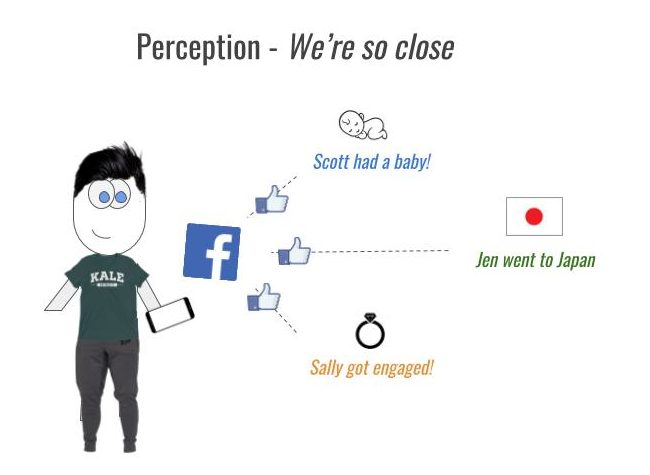
Social Media gives us an excuse to not reach out. You saw it on Instagram and double tapped it for the heart. So while we may be staying up to date on important moments, we’re not deepening our relationships.
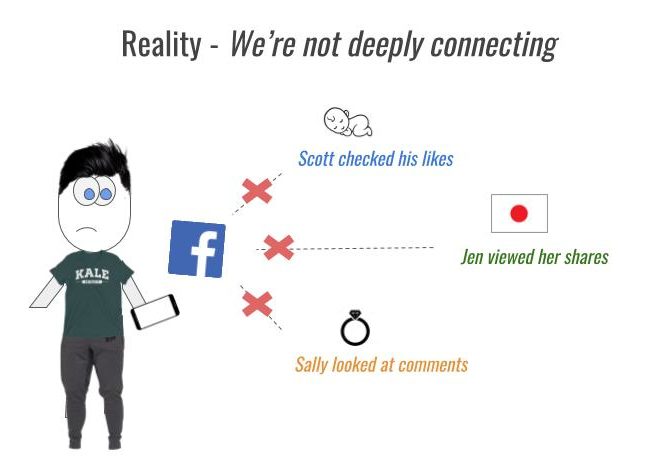
Relationships ebb and flow. I get it. But if you’re like me, you have friends, acquaintances, colleagues, sports team mates, relatives, etc. in your life that you have at one point been close with but eventually drifted apart.
Why is that?
You moved to different cities, you graduated, you changed teams, you got in a fight… whatever the reason, they moved on and you moved on. Were those people important to you? Valuable to your network? Did they make you laugh? Give you confidence? Push you to be better? How did you let these relationships slip away you ask yourself?
They may be gone for now, but not gone for good. In modern terms, these relationships are just a few clicks away from being rekindled.
Yes, the answer is that simple.
What are we waiting for?
Making a phone call isn’t hard. Clearly, it’s something else that is stopping us from reaching out to that old friend. This is where the perception pivot comes into play (to read more about perception pivots click here).
Our mind immediately goes to the worst case scenario. Essentially, the same reason you don’t walk up to the pretty girl at the bar is a different version of the same reason you don’t just call a friend you haven’t spoken to in 5 years out of the blue. Rejection.
But, the truth is, people are ALWAYS happy to hear from you. Always. What’s more flattering than getting a call from someone you haven’t heard from in a while? Who doesn’t love to be called and asked for career advice? Or catch up about old college memories?
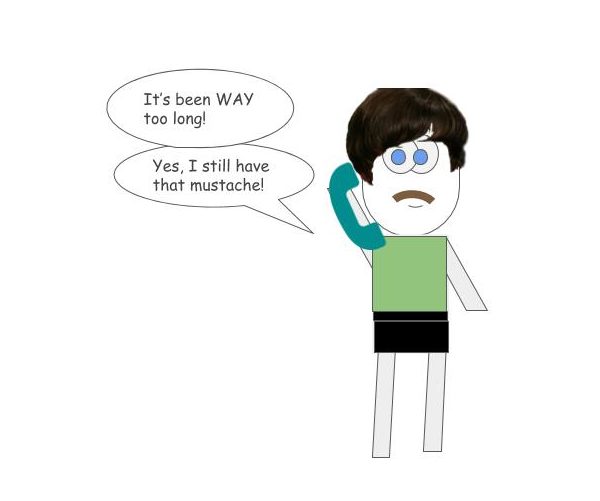
Imagine the scenario where your old co worker from your last firm calls you and you chat for 30 minutes and catch up. You go home, tell your significant other about it. Do you say, “ugh, you’ll never believe it, some guy that I worked with years ago called and talked my ear off, couldn’t get him off the phone. What a waste of time.”
OR do you think it goes more like, “Honey, I had a guy that I used to work with reach out. Really great to catch up with him. Turns out he’s working at a competitor of one of my clients. So awesome to hear from him – might even get some business out of it!”
Likely the conversation would be somewhere in between those two scenarios, but you get the point.
Beyond the benefits of networking and generally being “in the know”, why should you put yourself intentionally in seemingly tough and awkward positions?
Robert Waldinger, a professor of psychiatry at Harvard Medical School recently concluded one of the world’s longest studies of adult life. A key conclusion gleans why relationships are so critical.
Those who kept warm relationships lived longer and happier, and the loners often died earlier. Loneliness kills and on long time horizons, it’s as powerful as smoking or alcoholism.” **

We can’t all live in the same place, stay at the same job, have the same interests forever but, if you care about a relationship, don’t let too much time go between interactions. Friendships don’t take a long time to start fizzling out.
I know I am over simplifying it. If it was that easy, everyone would do it, right? Take some baby steps.
Make note of birthdays on your list of people you want to catch up with and, on that day, shoot them a text or give them a call. Talk about an easy in.
Keep up with someone’s LinkedIn updates. A congratulatory call when an old friend gets a promotion is a normal and positive reason to call someone… but NO ONE EVER DOES IT. You will stand out amongst your peers, if you do these things.
A Simple Framework
1. Make a list
- People you haven’t spoken to in a while that you that you care about
2. Tackle the list one by one
- Go down the list and just start calling people (texting counts, but use it as a tool to set something up)
- ie: Text someone to organize a time to talk or meet for a coffee
Download our simple spreadsheet here.
So you might ask yourself, why don’t people do it? I think there are a couple of reasons.
Number one, inertia/laziness/selfishness.
Get over it. Just reach out. Once you do it the first time, and you realize how fulfilling it is, you will want to do it over and over again. Not only will it feel good, but it helps ensure the network you worked so hard at creating remain healthy and strong.
You can feed your selfish side by remembering that staying in touch with smart and successful people will likely help you down the road. Not only that, people will start to look to you as the person that knows what everyone is up to.
It starts out hard with that first awkward conversation but quickly becomes easier and more natural.
It’s an upward spiral effect, and it’s all driven by you taking action.
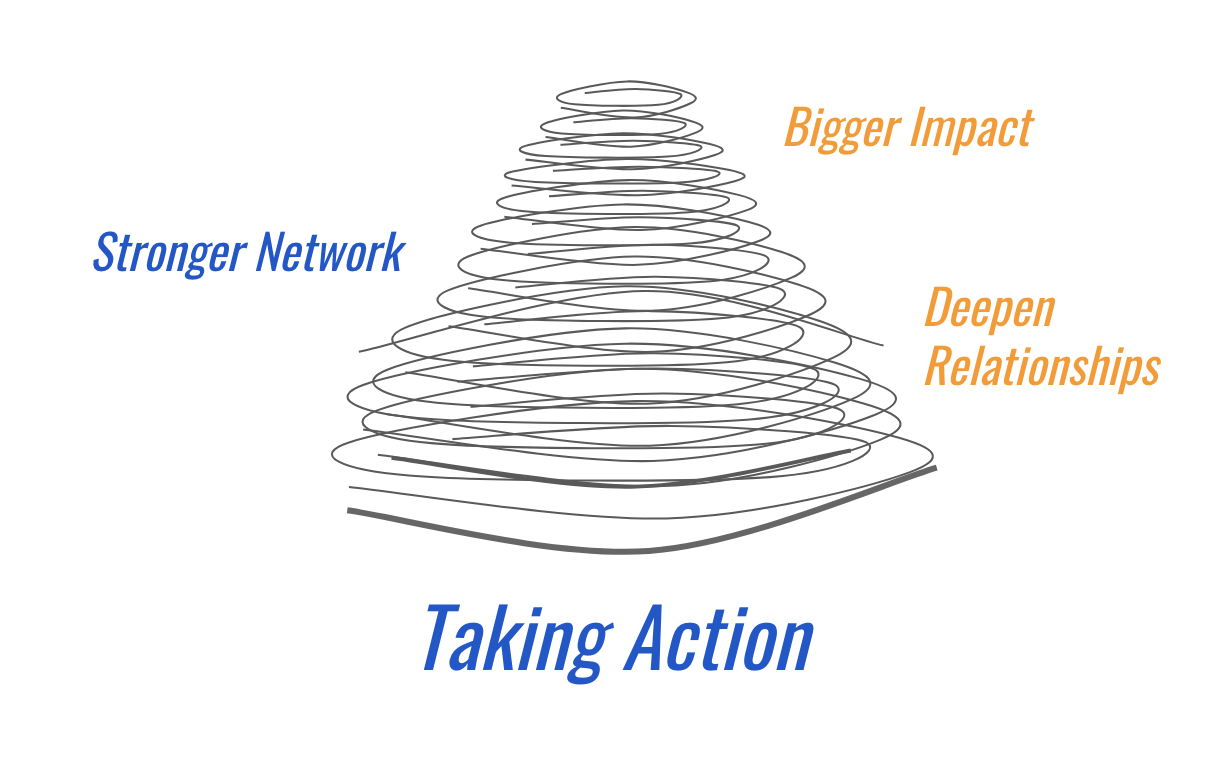
Why else do people not do it?
Fear.
What would I say? We haven’t spoke in so long… again, this is a bogus excuse. You will likely be the only person calling them out of the blue to catch up and they will be excited that you called.
The usual, “How’s work?”, “How are things?”, “Girlfriend?”, “Boyfriend?”, “Where are you living?” Those types of questions are OK. Remember, you haven’t spoken in a while. Even if the conversation never gets past those surface level topics, it was still worth having. If this is someone you care to maintain a relationship with, it IS worth doing. The next call will be easier.
When I ask people why they don’t keep in touch with their high school friends, their college friends, their old co workers, the answer is almost always, “I don’t know… but I really should“.
Let’s change that.
I challenge you to go out and make one phone call a week to a friend, old colleague, aunt or uncle that you haven’t kept up with and see how he or she is doing. Make a physical list of people, and keep it wherever you may be most inclined to make these calls.
For me, when I lived in NYC, I wouldn’t take the bus or train to and from work. I walked the thirty minutes, and every day on my way home, I called SOMEBODY. My mom, old college friends, friends from my hometown etc. Sure, I find value in listening to podcasts and music when walking or driving around, but I have never gotten more out of listening to music than I have strengthening a relationship.
This is the 21st century. We no longer need to write a letter and wait weeks for a response. There is really no good excuse for good relationships to shrivel up and disappear.
Connections matter. A lot. Let’s treat them with the amount of importance they deserve. Make the call.
*Special thanks to David Tillem for this guest post!
